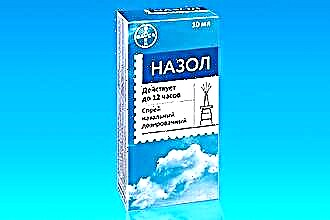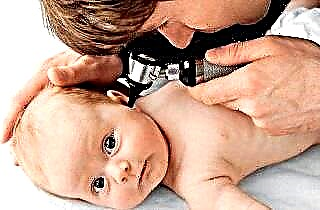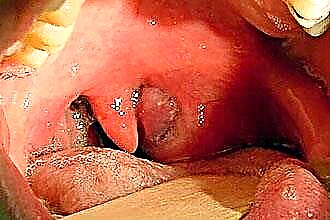Itching in the nasal cavity is a clear sign of irritation of the nasopharyngeal mucosa by allergens or pathogens. Most often, uncomfortable sensations are caused by the penetration of dust, animal hair, plant pollen, vapors from household chemicals, etc. into the nasal passages. Over time, inflammation and swelling of the tissues occurs at the sites of irritation of the mucous membrane, which leads to nasal congestion and rhinitis. How to be treated if it constantly tickles in the nose?
 The course of therapy depends on the etiological factors that provoked discomfort in the nasopharynx. Allergic manifestations are controlled by antihistamines, and infection by antiviral and antimicrobial agents. Timely response to the problem allows you to eliminate unwanted manifestations of allergies and respiratory disease, as well as prevent complications.
The course of therapy depends on the etiological factors that provoked discomfort in the nasopharynx. Allergic manifestations are controlled by antihistamines, and infection by antiviral and antimicrobial agents. Timely response to the problem allows you to eliminate unwanted manifestations of allergies and respiratory disease, as well as prevent complications.
Causes
If tickling and itching in the nasopharynx do not stop within a few days, this may indicate the development of pathological processes in the tissues. Discomfort occurs due to irritation of the nerve endings that permeate the mucous membrane of the ENT organs. The most probable irritants include pathogens (viruses, protozoa, fungal spores, microbes) and allergens (house dust, strong odors, gassed air, animal hair).
It is possible to determine the cause of itching in the nose by concomitant clinical manifestations. Their detection allows you to draw up the most optimal treatment for the disease and eliminate unwanted processes in the mucous membrane. Most often, tickling in the nose is triggered by the development of the following diseases:
| Name of the disease | Changes in the nasopharynx | Clinical picture |
|---|---|---|
| allergic rhinitis | inflammation and swelling of the nasal cavity, provoked by the penetration of allergens into the tissues | Nasal congestion, lacrimation, sneezing, itching and burning in the nasopharynx |
| ARVI | inflammation of the nose and larynx caused by the penetration of pathogenic viruses into the respiratory system | fever nasal congestion malaise itching in the nasal cavity sneezing discomfort in the throat |
| rhinopharyngitis | inflammation of the pharyngeal mucosa and nasal cavity associated with the development of a viral infection in the ENT organs | itching in the throat and nose severe runny nose low-grade fever symptoms of intoxication |
| atrophic rhinitis | inflammation of the nasopharynx, accompanied by atrophy (thinning) of the nasal mucosa and the formation of dry crusts on its surface | dry nasal mucosa nasal congestion nosebleeds itching in the nasal cavity soreness on palpation of the wings of the nose |
| vasomotor rhinitis | narrowing of the lumen in the nasal passages associated with a decrease in vascular tone in the mucous membrane and its swelling | loss of smell difficulty nasal breathing dryness of the nasopharyngeal mucosa, perspiration and itching in the nasal passages |
Only an otolaryngologist can correctly diagnose after an instrumental examination of the patient's nasopharynx. Self-medication is fraught with deterioration in health and dire consequences. Inadequate therapy for allergic rhinitis can lead to inflammation not only of the nasal cavity, but also of the lower respiratory tract. Subsequently, this will lead to obstruction of the airways, difficulty breathing and attacks of suffocation.
Allergy treatment
If the itching and tickling in the nasopharynx does not go away within 5-7 days, then it almost certainly indicates the development of allergic reactions.
Before starting treatment, it is necessary to identify and eliminate the causal allergen. If this is not done, after undergoing drug therapy, inflammation in the nasal cavity will reappear due to the repeated penetration of allergens into the mucous membrane.
To alleviate the patient's condition and stop unwanted reactions in the respiratory system, the following drugs are used.
Antihistamine tablets
Antiallergic agents of systemic action prevent the destruction of the so-called mast cells, which contain inflammatory mediators. Timely medication can stop allergic reactions in soft tissues, relieve swelling and inflammation. In the process of treating allergic rhinitis, the following are usually used:
- "Subrestin";
- Diprazine;
- Tavegil;
- "Pipolzin";
- "Suprastin".
It is important to remember that antiallergic drugs potentiate (enhance) the effect of narcotic painkillers.
Some types of antiallergic tablets ("Diprazin", "Tavegil") enhance the effect of analgesics, which should be taken into account when undergoing pharmacotherapy. To avoid adverse reactions, seek the help of a specialist to determine the optimal dosage of drugs.
Antiallergic nasal agents
 Antihistamines nasal drugs stop and prevent inflammation in the nose due to the formation of a protective film on the surface of the mucous membrane. Some products additionally contain substances that inhibit the production of histamine. Reducing the concentration of inflammatory mediators in soft tissues allows you to quickly eliminate itching, inflammation and swelling in the nasopharynx. The most effective antiallergic drops include:
Antihistamines nasal drugs stop and prevent inflammation in the nose due to the formation of a protective film on the surface of the mucous membrane. Some products additionally contain substances that inhibit the production of histamine. Reducing the concentration of inflammatory mediators in soft tissues allows you to quickly eliminate itching, inflammation and swelling in the nasopharynx. The most effective antiallergic drops include:
- "Alergodil";
- "Levocabastine";
- Cromhexal;
- Fenistil.
The abuse of antiallergic drugs is fraught with degenerative processes in the mucous membrane and the development of atrophic rhinitis.
Irrigation of the nasopharynx
Nasal lavage (nasal lavage) is a quick and painless method of eliminating allergens from the respiratory system. During irrigation of the nasal mucosa, not only irritating substances, but also infectious agents are washed off from its surface. The systematic implementation of therapeutic measures can reduce the likelihood of developing respiratory diseases and eliminate directly the cause of allergic rhinitis - allergens.
In order to expand the range of therapeutic action of the physiotherapy, it is recommended to use preparations based on sea salt for irrigation of the nasopharynx. They reduce vascular permeability, which helps to eliminate puffiness and facilitate nasal breathing:
- Physiomer;
- "Quicks";
- Otrivin;
- Morenazal.
It is undesirable to inject drugs into the nasal passages under pressure, as this can lead to inflammation of the Eustachian tube.
For the introduction of solutions into the nose, it is advisable to use irrigators and special teapots (neti pot). With their help, liquid is introduced into the nasopharynx under a slight pressure, which prevents it from penetrating into the auditory tube.
Treatment of infectious diseases
Tickling in the nose, provoked by pathogens, lasts no more than 3-4 days after infection of the ENT organs. Uncomfortable sensations arise due to the introduction and reproduction of pathogens in the epithelial cells. If the infection in the respiratory organs is not eliminated in time, this will subsequently lead to inflammation of the mucous membrane and a runny nose.
Treatment of respiratory infections in the nasopharynx is carried out with the following drugs:
Nasal drops and sprays
Nasal drops and sprays can help relieve nasal breathing, eliminate inflammation, swelling and itching. Depending on the cause of discomfort in the nasopharynx, the following types of drugs can be used to eliminate symptoms:
 moisturizers - "Otrivin", "No-salt", "Marimer";
moisturizers - "Otrivin", "No-salt", "Marimer";- vasoconstrictor - "Rinazolin", "Nazol", "Tizin";
- antiseptic - "Collargol", "Protargol", "Bioparox";
- hormonal - "Sintaris", "Benacap", "Nasonex".
The safest are moisturizing drops that do not contain antibiotics or hormones.They contain sea salt and trace elements that improve tissue trophism, accelerate their healing and prevent the nasopharynx from drying out. They are used not only for treatment, but also for the prevention of atrophic and allergic rhinitis.
Etiotropic drugs
Etiotropic drugs are called drugs that destroy the causative agent of the infection. Both viruses and pathogenic bacteria can provoke unwanted reactions in the nasopharynx. For this reason, the following can be used to eliminate them:
- antiviral agents ("Arbidol", "Groprinosin") - inhibit the development of virions in the foci of inflammation, thereby reducing the severity of itching and inflammation in the nasal mucosa;
- antibiotics ("Midecamycin", "Erythromycin") - prevent the reproduction of pathogenic microbes in the respiratory tract, which lead to the development of frontal sinusitis, sinusitis, ethmoiditis, sphenoiditis, etc.
Important! Antibiotics are ineffective against allergens and viruses, so they can only be used to treat bacterial inflammation.
In rare cases, itching in the nose occurs due to the development of mycotic flora, i.e. mold or yeast-like fungi. The reason for this may be a decrease in local immunity caused by the irrational use of antibiotics and hormonal agents. For the treatment of mycoses in the nose, "Pimafucin", "Kanizon", "Candide", "Nizoral", etc. are used.
Ointment for the nose
 Ointments for the nose are the most effective drugs that help eliminate not only itching or runny nose, but also its complications. Our colleagues took a unique interview. Read here. As always, as exciting as possible. Depending on the biochemical composition, ointments can have anti-inflammatory, wound healing, antiviral, antimicrobial and antiseptic properties. To eliminate itching caused by an infectious rhinitis, it is recommended to use the following ointments:
Ointments for the nose are the most effective drugs that help eliminate not only itching or runny nose, but also its complications. Our colleagues took a unique interview. Read here. As always, as exciting as possible. Depending on the biochemical composition, ointments can have anti-inflammatory, wound healing, antiviral, antimicrobial and antiseptic properties. To eliminate itching caused by an infectious rhinitis, it is recommended to use the following ointments:
- "Pinosol";
- Fleming's Ointment;
- "Doctor Mom";
- "Viferon";
- Evamenol ".
With the above drugs, you can simply lubricate the inner surface of the nasal passages or use them as a basis for local compresses. To make a compress, you need to lubricate the gauze turunda in the preparation and insert it into your nose for 1-2 hours. For best results, the procedure should be repeated at least 2-3 times a day.
Conclusion
Tickling in the nose is an alarming symptom indicating irritation of the mucous membrane in the nasal cavity. Irritating substances such as dust, wool, household chemicals, perfumes, gnawed air or pathogens can provoke unwanted processes in the respiratory system. Ways to eliminate itching in the nasopharynx are determined by the causes of the problem. Allergies are treated with antihistamines, and respiratory infections are treated with antiviral and antimicrobial drugs.
Symptomatic therapy of allergic and infectious diseases has practically no differences. Moisturizing nasal drops, ointments, and nasopharyngeal lavage solutions are commonly used to relieve itching and soreness in the nose. Complex treatment allows you to stop unpleasant symptoms in the ENT organs and prevent their inflammation.

 moisturizers - "Otrivin", "No-salt", "Marimer";
moisturizers - "Otrivin", "No-salt", "Marimer";

